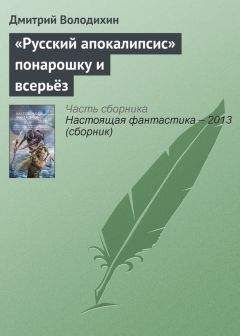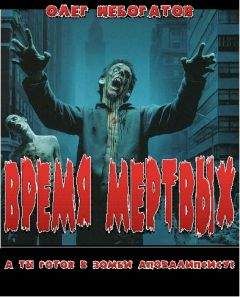Вали Наср - Необязательная страна
2 Radjiv Chandrasekaran, Little America: The War Within the War for Afghanistan (New York: Knopf, 2012), pp. 261–269.
3 О том, как эта идея использовалась лидерами Демократической партии см.: James Mann, The Obamians: The Struggle Inside the White House to Redefine American Power (New York: Viking, 2012), pp. 37–38.
4 Эта тема лучше всего освещена в: Robert Kagan. The World America Made (New York: Knopf, 2012).
5 James Risen, «U.S. Identifies Vast Mineral Riches in Afghanistan», New York Times, June 13, 2010, www.nytimes.com/2010/06/14/world/asia/14minerals.html?pagewanted=all.
6 Эта концепция лучше всего разработана в: Richard Haass, War of Necessity, War of Choice: A Memoir of Two Iraq Wars (New York: Simon & Schuster, 2009).
7 Judy Hevrdejs, «Hamid Karzai: The World’s Most Stylish Man?» Chicago Tribune, January 31, 2002, http://articles.chicagotribune.com/2002—01–31/features/0201310025_1_hamid-karzai-glenn-o-brien-hats.
8 Весьма значительным событием в этом отступлении стала удачная операция, предпринятая лидерами Талибана, а также персонально Усамой бен Ладеном и Муллой Омаром, которым удалось ускользнуть из сетей, расставленных США и НАТО в декабре 2001 года в пещерном комплексе Тора-Бора, расположенном примерно в 10 км от линии района проживания племен, находящемся под федеральным управлением в Пакистане (ФАТА). Неудача с арестом бен Ладена в Тора-Бора была признана не только как неудача командования США и нерешительность НАТО, но и как плохой знак на будущее. Она была отнесена на счет плохой охраны Пакистаном своих границ, а также на ненадежность или, возможно, даже преднамеренное предательство со стороны местных афганских войск, которые, как предполагалось, должны были действовать как союзники США, а на самом деле создавали возможности для бегства бен Ладена. См. Seen Naylor, Not a Good Day to Die: The Untold Story of Operation Anaconda (New York: Berkley, 2005).
9 Naylor, Not a Good Day to Die.
10 Angela Balakrishnan, «Afghanistan Troops Deaths Outnumbers Those Killed in Iraq», Guardian, July 1, 2008. http://www.guardian.co.uk/world/2008/jul/01/afghanistan.iraq; Ahmed Rashid, Pakistan on the Brink: The Future of America, Pakistan, and Afghanistan (New York: Viking, 2012), p. 74.
11 Antonio Giustozzi, Koran, Kalashnikov, and Laptop: The Neo-Taliban Insurgency in Afghanistan 2002–2007 (New York: New York University Press, 2009).
12 Steve Coll, Ghost Wars: The Secret History of the CIA, Afghanistan and Bin Laden, from the Soviet Invasion to September 10, 2001 (New York: Penguin, 2004), p. 134.
13 Ian S. Livingston and Michael O’Hanlon, Afghanistan Index: Tracking Variables of Reconstruction and Security in Post-9/11 Afghanistan (Washington, DC: Brookings Institution, January 30, 2012), p. 18 http://www.brookings.edu/-media/Files/Programs/FP/afghanistan%20index/index.pdf.
14 Bob Woodward, Obama’s Wars (New York: Simon & Schuster, 2010), pp. 88–90.
15 Radjiv Chandrasekaran, Little America: The War Within the War for Afghanistan (New York: Knopf, 2012).
16 Чандрасекаран дает невероятное описание коррупции и злоупотреблений властью Карзаем в Маленькой Америке в Афганистане.
17 Там же.
18 Sheri Berman, «From Sun King to Karzai: Lessons for State Building in Afghanistan», Foreign Affairs, March/April 2010, http://www.foreignaffairs.com/articles/65984/sheri-berman/from-the-sun-king-to-karzai. Для более широкого обсуждения данной темы см.: The Origins of Political Order: From Prehuman Times to the French Revolution (New York: Farrar, Straus and Giroux, 2011), pp. xi – xiii.
19 Thomas Barfield, «Afghanistan’s Ethnic Puzzle», Foreign Affairs, September/October 2011, http://www.foreignaffairs.com/articles/68204/thomas-barfield/afghanistan-ethnic-puzzle.
20 Antonio Giustozzi, Decoding the Taliban: Insights from the Afghan Field (New York: Columbia University Press, 2009).
21 Для более полного представления по этой теме см.: Kimberly Kagan, «The Anbar Awakening: Displacing al-Qaeda from Its Stronghold in Western Iraq», Iraq Report, Institute for Study of War and WeeklyStandard.com, August 21 2006 – March 30 2007, http://www.understandingwar.org/sites/default/files/reports/IraqReport03.pdf.
22 Лучше всего описано, как работала эта стратегия, в: Michael O’Hanlon and Hassina Sherjan, Toughing It Out in Afghanistan (Washington, DC: Brookings Institution, 2010).
23 President Obama’s Secret: Only 100 al Qaeda Now in Afghanistan», ABC News, http://abcnews.go.com/Blotter/president-obamas-secret-100-al-Qaeda-now-afghanistan/story?id=9227861#.TyypheNWqf8.
24 Ambassador Eikenberry’s Cables on U. S. Strategy in Afghanistan», New York Times, http://documents.nytimes.com/eikenberry-s-memos-on-the-strategy-in-afghanistan-#p=1.
25 James Dobbins, «Your COIN Is No Good Here», Foreign Affairs, October 2010, http://www.foreignaffairs.com/articles/66949/james-dobbins/your-coin-is-no-good-here?page=2.
26 Chandrasekaran, Little America, pp. 68–81.
27 Rashid, Pakistan on the Brink, p. 76.
28 Там же. С. 19–20.
29 Geir Lundestad, The United States and Western Europe since 1945: From «Empire» by Invitation to Transatlantic Drift (New York: Oxford University Press, 2003), p. 160, цитируется по: Robert Kagan, The World America Made (New York: Knopf, 2012) p. 63.
30 Fotini Christia and Michael Sempel, «Flipping the Taliban», Foreign Affairs, July/August 2009, http://www.foreignaffairs.com/articles/65151/fotini-christia-and-michael-semple/flipping-the-taliban.
31 Строб Тэлботт впервые назвал Холбрука «беспокойным американцем» в некрологе «Памяти Ричарда Холбрука», Washington Post, December 15,2010, http://www.washingtonpost.com/wp-content/article/2010/12/14/AR2010121406366.html. Позднее вышла биография Холбрука под таким же названием: Derek Chollet and Samantha Power, eds., The Unquiet American: Richard Holbrooke in the World (New York: Public Affairs, 2011).
32 Mark Lander, «Afghan Shift Puts Top U. S. Civilians in Tricky Spot», New York Times, July 1, 2010, p. A14.
33 Из интервью автора с Марком Лэндером в августе 2010 года.
34 Radjiv Chandrasekaran, Little America: The War Within the War for Afghanistan (New York: Knopf, 2012), p. 230.
35 Les Gelb, «Richard Holbrook’s Lonely Mission», Daily Beast, January 16, 2011, http://www.thedailybeast.com/newsweek/2011/01/16/richard-holbrook-s-lonely-mission.html.
36 Цит. по: William H. Luers and Thomas R. Pickering, «Envisioning a Deal with Iran», New York Times, February 2, 2012, http://www.nytimes.com/2012/02/03/opinion/envisioning-a-deal-with-iran.html?_r=1&ref=opinion.
37 Matthew Rosenberg, «When Afghans Look to the Border with Pakistan, They Don’t See a Fixed Line», New York Times, October 29, 2012, p. A9.
38 Выступление Роберта Д. Хорматса на конференции на тему «Стратегия Соединенных Штатов «Нового шелкового пути»: Что это такое? Куда она ведет?», 29 сентября 2011 года. School of Advanced International Studies, John Hopkins University, доступно на: http://www.state.gov/e/r1s/rmk/2011/174800.htm.
39 Обама даже обсуждал эту идею с журналистами в августе 2010 года. David Ignatius, «The U. S. Should Test Iran’s Resolve to Stabilize Afghanistan», Washington Post, September 17, 2010, http://www.washigtonpost.com/wp-dyn/content/article/2010/09/16/AR2010091606067.html.
40 Christoph Reuter, Gregor Peter Schmitz, and Holger Stark, «How German Diplomats Opened Channel to Taliban», Der Spiegel, January 10, 2012, http://www.spiegel.de/international/world/0,1518,808068,00.html.
41 Ahmed Rashid, Pakistan on the Brink: The Future of the America, Pakistan, and Afghanistan (New York: Viking, 2012), pp. 113—36.
42 Rod Norland and Alissa Rubin, «Taliban Captives Dispute U. S. View on Afghanistan War», New York Times, February 2, 2012, p. A1.
43 Позднее, в 2010 году, Аише, чьи уши были также отрезаны, пластические хирурги из Лос-Анджелеса сделали пластическую операцию. См.: http://www.theage.com.au/world/doctors-rebuild-face-and-future-of-afghan-child-bride-20101014—161t2.html.
44 К этому времени уже был опубликован ряд серьезных исследований на тему того, как вести переговоры о примирении. Некоторые из них оказали влияние на дебаты внутри Белого дома. Lakhdar Brahimi and Thomas C. Pickering, Afghanistan: Negotiating Peace (New York: Century Foundation, 2011); James Shinn and James Dobbins, Afghan Peace Talks: A Primer (Washington, DC: RAND Corporation, 2011).
45 Vali Nasr, «No More Bullying Pakistan», Bloomberg View, July 5, 2012, http://www.bloomberg.com/news/2012—07–05/u-s-apology-ends-doomed-policy-of-bullying-pakistan-vali-nasr.html.
46 Stephen Krasner, «Talking Tough to Pakistan», Foreign Affairs, January/February 2012, pp. 87–96.
47 Jeffrey Goldberg and Marc Ambinder, «The Ally from Hell», Atlantic, December 2011, http://www.theatlantic.com/magazine/archive/2011/12/the-ally-from-hell/8730/.
48 Bruce Riedel, «A New Pakistan Policy: Containment», New York Times, October 14, 2011, p. A19; Zalmay Khalilzad, «A Strategy of ‘Congagement’ Toward Pakistan», Washington Quarterly 35, no. 2 (Winter 2012): 107—19. См. также: Gerald Stang, «US Strategic Interests in South Asia: What Not to Do with Pakistan», European Union Institute for Security Studies, June 25, 2012, http://www.iss.europa.eu/publications/detail/article/us-strategic-interests-in-south-asia-what-to-do-with-pakistan/.
49 «U.S. Embassy Cables: ‘Reviewing Our Afghanistan-Pakistan Strategy’,» Guardian, November 30, 2010, http://www.guardian.co.uk/world/us-embassy-cables-documents/226531.
50 См.: Matthew Teague, «Black Ops and Blood Money», Men’s Journal, June 2011, http://www.mensjournal.com/black-ops-and-blood-money.
51 Детальное описание этих отношений можно найти у: Dennis Kux, The United States and Pakistan, 1947–2000: Disenchanted Allies (Baltimore: Johns Hopkins University Press, 2001) и у: Teresita Schaffer and Howard Schaffer, How Pakistan Negotiates with the United States: Riding the Roller Coaster (Washington, DC: United States Institute of Peace, 2011).
52 Ahmed Rashid, Descent into Chaos: The United States and the Failure of National Building in Pakistan, Afghanistan, and Сеntral Asia (New York: Viking, 2008).
53 Pervez Musharraf, In the Line of Fire: A memoir (New York: Free Press, 2006), p. 201.
54 Steve Coll, «Looking for Mulla Omar», New Yorker. January 23, 2012, p. 52.
55 Declan Walsh and Eric Schmitt, «Militant Group Poses Risk to U.S. – Pakistan Relations», New York Times, July 31, 2012, p. A1.
56 David Rohde and Kristen Mulvihill, A Rope and a Prayer: A Kidnapping from Two Sides (New York: Viking, 2010).
57 Ahmed Rashid, Pakistan on the Brink: The Future of America, Pakistan, and Afghanistan (New York: Viking, 2012), p. 150.
58 Goldberg and Ambinder, «The Ally from Hell».
59 Barnett R. Rubin and Ahmed Rashid, «From Great Game to Grand Bargain: Ending Chaos in Afghanistan and Pakistan», Foreign Affairs, November/December 2008, pp. 30–44.
60 Наилучшее представление о войне и роли Пакистана в ней сделано: Steve Coll, Ghost Wars: The Secret History of the CIA, Afghanistan, and Bin Laden, from the Soviet Invasion to September 10, 2001 (New York: Penguin Press, 2004).
61 Bruce Riedel, Deadly Embrace: Pakistan, America and the Future of Global Jihad (Washington, DC: Brookings Institution Press, 2011).
62 Imtiaz Gul, The Most Dangerous Place: Pakistan’s Lawless Frontier (New York: Viking, 2010), pp. 112—29.
63 Цит. по: Mohsin Hamid, «Why They Get Pakistan Wrong», (New York Review of Books, September 29, 2011), http://www.nybooks.com/articles/archives/2011/sep/29/why-they-get-pakistan-wrong/?pagination=false.
64 Zahid Hassain, «Pakistan’s Most Dangerous Place», Wilson Quarterly, Winter 2012, http://www.wilsonquaterly.com/article.cfm?aid=2097.




